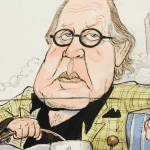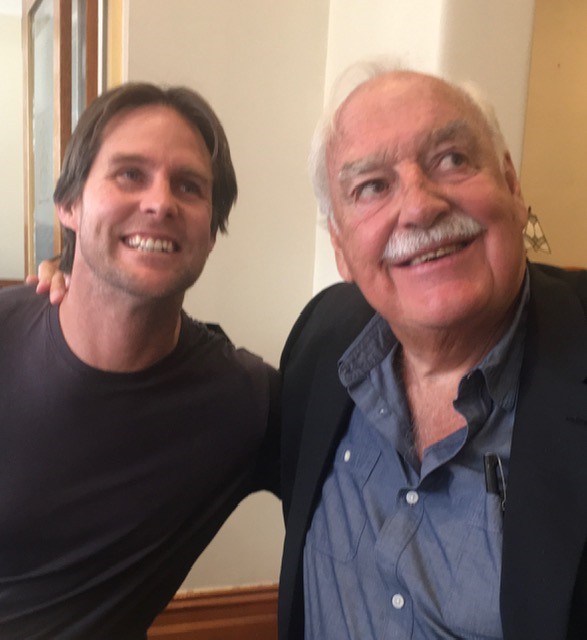FERRARI’S mistakes at Suzuka emphasised the discipline that has brought Mercedes an unprecedented sixth successive constructor’s championship and a certain sixth driver’s championship for Lewis Hamilton. PETER COSTER reports:
THE Mercedes team is the reincarnation of the Silver Arrows cars that dominated Grand Pix racing before the world championship began in 1950.
The new Silver Arrows team is led by Toto Wolff, a far different character from legendary Mercedes team boss Alfred Nebauer.
This larger-than-life figure would stand at the side of the track physically urging his drivers to greater efforts, a hat jammed on his head and a stopwatch clutched in either hand.
He often threw his hat under the wheels of one of his cars as it passed the chequered flag.
Hermann Lang, Manfred von Brauchitsch, Rudolf Caracciola and the Englishman Richard Seaman drove cars that were as fast as the Mercedes of today, but as hard to handle as a bolting horse.
Juan Manuel Fangio won the world driver’s championship for Mercedes in 1954 and 1955, when Pierre Levegh’s 300SL crashed into the crowd.
Eighty four spectators were killed and more than 180 injured in motor racing’s worst accident. The Silver Arrows retired.
At the Japanese Grand Prix at Suzuka, Mercedes’ great rival Ferrari was on the front row of the grid with the reborn Silver Arrows on the second row.
Sebastian Vettel was on pole after being out-qualified by 21-year-old Charles Leclerc in the previous four races.
But Vettel’s Ferrari moved momentarily just before the lights went out, the latest in a string of errors by the German driver that has led to speculation he might retire at the end of the current season.
Vettel avoided what would have been a certain penalty for a jump start by stopping before the car activated the transponder at the edge of the pit box.
It was enough to allow the Finnish driver, Valtteri Bottas, to rush past. Leclerc then tangled with Red Bull’s Max Verstappen and that ruined the race for both Ferrari drivers.
Vettel finished second ahead of Lewis Hamilton’s Mercedes and Leclerc picked up a 15-second penalty for not only sliding into Verstappen but refusing to come into the pits as debris flew off his car.
Probably the drive of the day went to Daniel Ricciardo in his Renault after starting 16th on the grid, finishing seventh and being promoted to sixth when Leclerc was penalised.
Once again, the Australian proved himself the master of the overtake after a disappointing qualifying run because of handling problems.
Super typhoon Hagibis cut a swathe down the Japanese coast, forcing qualification to be moved to Sunday morning, which gave little time for teams to set up their cars with the race starting in the afternoon.
In the drivers’ cooling down room after the race, Hamilton stood aside as Vettel playfully kicked at Bottas’s leg.
It was a strange way to congratulate the winner but Hamilton might have kicked harder.
But the relationship between the Ferrari drivers is worse after Vettel ignored team orders at the Russian Grand Prix at Sochi.
Pole-sitting Leclerc gave Vettel a tow in his slipstream, which put him in the lead. The idea was to deny giving the same advantage to Hamilton.
In the likelihood of Vettel then pulling past Leclerc on the long starting straight, the Ferrari drivers were to swap positions, but the German failed to honour the pre-race agreement.
Embed from Getty ImagesLeclerc’s mood has been as black as the Black Sea where the race was run, and the two drivers appear to have had little to say to each other since. Ferrari’s new team orders might be if you can’t say something pleasant to each other, don’t say anything at all.
After the Suzuka race, Toto Wolff was a man probably wondering whether there was anything more to achieve after the Silver Arrows dominance.
The Ferraris were faster at Suzuka, pulling away from the following Mercedes as they exited corners and flew down the straights.
Each team said the other team’s cars were the faster but in spite of the result the Ferraris were faster on the day.
What has become evident is the superiority of Mercedes and Ferrari over the Red Bulls.
Honda, after a promising start to the season with Red Bull, failed to deliver an expected improvement in performance at the Japanese manufacturer’s home Grand Prix.
Big changes are coming in F1 regulations in 2021, but whether Honda decides to continue racing is being questioned.
Red Bull dropped Renault as its engine supplier in favour of Honda, but this is becoming an issue with its lead driver Max Verstappen.
There is a performance clause in Verstappen’s contract, which allows him to walk away if the results show the car is incapable of bringing him a world championship.
Verstappen was forced to retire from the Suzuka race after the clash with Leclerc and is showing increasing signs of frustration.
One positive to be taken away from this season is a more lenient attitude by the stewards in assessing racing “incidents”.
The worst example of this, certainly as far as Sebastian Vettel was concerned, was at the Canadian Grand Prix when he left the track but quickly rejoined in front of Hamilton.
The stewards regarded this as “unsafe” and imposed a five-second penalty, which robbed Vettel of the race after finishing in front of the Mercedes driver.
When the cars were in parc ferme after the race a furious Vettel stormed over to Hamilton’s car to replace the No. 1 marker with the No. 2 in front of his own car.
At Suzuka, the stewards at least gave careful consideration to the Verstappen and Leclerc tangle, at first saying there would be no further investigation before imposing a penalty.
Verstappen is a hard racer but in this case it was Leclerc who allowed his car to slide into the Red Bull.
After an aggressive start to his F1 career, Verstappen said at Suzuka there is a line that should not be crossed.
As an example he put forward the Adelaide Grand Prix of 1994 when Michael Schumacher slid off the track but then turned into the following Damon Hill to stop him winning the world championship.
Both cars were forced to retire, giving Schumacher the championship in what was the final race of the season.
At Suzuka, he said, it was Leclerc who was “irresponsible”. The now 22-year-old Verstappen said he liked “hard racing, but I don’t think his was hard racing. Charles just drove into the side of my car”.
The championships may be over but there are still races to be won, egos to be stroked and scores to be settled.
PETER COSTER is a former editor and foreign correspondent who has covered a range of international sports, including world championship fights and the Olympic Games.




Discussion about this post